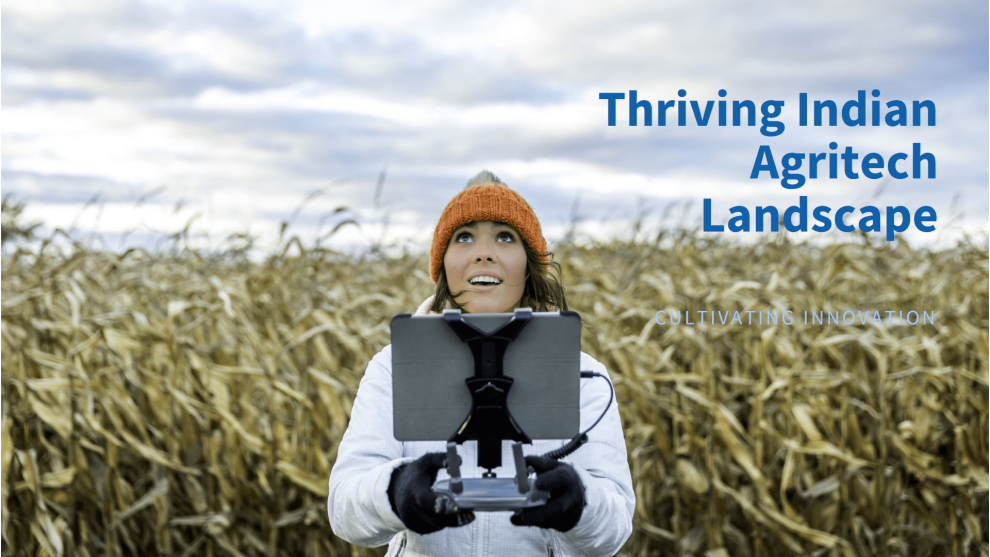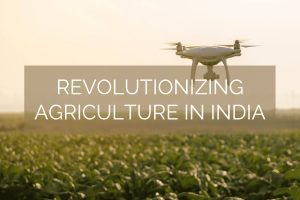India’s agricultural sector, traditionally reliant on age-old practices and smallholder farming, is experiencing a dynamic transformation driven by technology. The integration of technology into agriculture, known as agritech, is unlocking new opportunities for farmers, agribusinesses, and the broader food supply chain. This article provides an in-depth exploration of the Indian agritech landscape, examining its evolution, key players, impactful technologies, challenges, opportunities, and future outlook.
Evolution of Indian Agritech
Traditional Agriculture vs. Technological Transformation
For decades, Indian agriculture has been characterized by small-scale farming, fragmented landholdings, and reliance on traditional practices. The sector faced numerous challenges, including low productivity, inadequate infrastructure, and poor market access. However, the advent of agritech has ushered in a new era, revolutionizing how farming is conducted and managed.
Early Milestones in Agritech
The journey of agritech in India began with the introduction of precision agriculture and farm mechanization. Precision agriculture involves using technology to monitor and optimize crop growth, while farm mechanization refers to the use of machinery to improve efficiency. Over time, these initial innovations have evolved into a robust agritech ecosystem, encompassing a wide range of technologies and solutions.
Key Segments and Players in Indian Agritech
Precision Farming
Precision farming leverages technology to enhance crop management and resource utilization. It includes the use of GPS, sensors, and data analytics to monitor and manage crop health, soil conditions, and irrigation.
Notable Players:
- AgroStar: Offers a platform for farmers to access quality agricultural inputs and expert advice.
- CropIn: Provides farm management software and analytics for precision farming.
Farm Management Software
Farm management software helps farmers streamline operations, manage resources, and make data-driven decisions. These tools integrate various aspects of farm management, including planting schedules, crop rotation, and financial planning.
Notable Players:
- DeHaat: Offers a comprehensive farm management platform, connecting farmers with inputs, services, and market linkages.
- AgriDigital: Provides a digital platform for managing farm operations and trading agricultural commodities.
Supply Chain Optimization
Optimizing the agricultural supply chain involves improving the efficiency of logistics, storage, and distribution processes. Agritech solutions in this segment aim to reduce wastage, enhance transparency, and streamline operations.
Notable Players:
- Ninjacart: Uses technology to optimize the supply chain for fresh produce, connecting farmers directly with retailers.
- LogisticsNow: Focuses on logistics solutions for the agricultural sector, improving transportation and storage.
Market Linkages
Market linkage platforms connect farmers with buyers, helping them get better prices for their produce and reducing dependence on middlemen.
Notable Players:
- Fasal: Provides a platform for farmers to connect with buyers and access market insights.
- RuralShores: Offers a marketplace for agricultural products, connecting rural producers with urban consumers.
Agri-Finance
Agri-finance solutions provide farmers with access to credit, insurance, and investment opportunities. These financial services are crucial for enabling farmers to invest in technology, improve productivity, and manage risks.
Notable Players:
- Kiva: Provides microloans to farmers, helping them access the capital needed for growth.
- Aye Finance: Offers financial products tailored to the needs of smallholder farmers.
Impactful Technologies in Agritech
Internet of Things (IoT) and Sensors
IoT-enabled sensors play a crucial role in modern agritech by providing real-time data on soil health, crop growth, and environmental conditions. These sensors help farmers make informed decisions and optimize resource use.
- Soil Sensors: Monitor soil moisture, temperature, and nutrient levels.
- Weather Stations: Provide local weather data to aid in planning irrigation and planting.
Artificial Intelligence (AI) and Machine Learning (ML)
AI and ML algorithms analyze agricultural data to offer actionable insights. These technologies are used for various applications, including crop management, pest detection, and yield forecasting.
- Crop Management: AI tools help in predicting crop yields and optimizing planting strategies.
- Pest Detection: ML algorithms identify pest infestations and recommend treatment options.
Blockchain Technology
Blockchain enhances transparency and traceability in the agricultural supply chain. By providing a secure and immutable record of transactions, blockchain reduces fraud and improves trust among stakeholders.
- Supply Chain Tracking: Ensures the authenticity and traceability of agricultural products.
- Smart Contracts: Automates and secures transactions between buyers and sellers.
Drones and Satellite Imaging
Drones and satellite imagery provide high-resolution images of farmland, allowing farmers to assess crop health, identify stress areas, and optimize irrigation and fertilizer application.
- Crop Health Monitoring: Detects disease and nutrient deficiencies.
- Precision Irrigation: Optimizes water use based on real-time data.
Challenges and Opportunities in Agritech
Challenges
- Limited Access to Technology: Many farmers in rural areas lack access to advanced technologies and digital infrastructure.
- Low Digital Literacy: Digital literacy among farmers is often low, hindering the adoption of technology.
- Fragmented Value Chains: The agricultural value chain in India is fragmented, creating inefficiencies and increasing costs.
- Regulatory Barriers: Regulatory constraints and lack of standardization can impede the growth of agritech startups.
Opportunities
- Scalable Solutions: Developing scalable and inclusive agritech solutions can address productivity constraints and enhance farmer livelihoods.
- Collaborative Innovation: Collaboration between startups, government agencies, and research institutions can drive impactful innovations.
- Investment Growth: Increasing investor interest in agritech startups provides opportunities for funding and expansion.
- Government Support: Government initiatives and policy reforms can create a conducive environment for agritech growth.
Government Initiatives and Policies
National e-Governance Plan for Agriculture (NeGPA)
The NeGPA aims to promote digitalization in agriculture by providing technology solutions for farm management, data analytics, and market access.
Pradhan Mantri Fasal Bima Yojana (PMFBY)
PMFBY is a crop insurance scheme designed to provide financial protection against crop losses due to natural calamities, pests, and diseases.
e-NAM (National Agriculture Market) Platform
The e-NAM platform facilitates online trading of agricultural commodities, improving market access and price transparency for farmers.
Recent Farm Acts
The recent Farm Acts aim to create a more flexible and competitive agricultural market by allowing farmers to sell directly to buyers and access better prices.
Future Outlook for Indian Agritech
The future of agritech in India is promising, driven by several key factors:
- Increasing Digital Adoption: Growing adoption of digital technologies among farmers and agribusinesses.
- Demand for Quality Produce: Rising consumer demand for high-quality and traceable agricultural products.
- Investor Interest: Growing investor interest in agritech startups and innovations.
- Collaborative Ecosystem: Strengthened collaboration between startups, government, and research institutions.
As the agritech ecosystem continues to evolve, it will play a crucial role in addressing the sector’s challenges, enhancing productivity, and driving sustainable development in rural India.
Conclusion
The Indian agritech landscape represents a transformative force in agriculture, bringing innovation and technology to the forefront of farming practices. With its diverse range of technologies and solutions, agritech is reshaping the agricultural sector and empowering farmers to thrive in a digital world. By leveraging technology, fostering collaboration, and prioritizing sustainability, India can unlock the full potential of agritech to drive inclusive growth, food security, and rural prosperity in the years to come.
For more insights on agritech, startups, and technological advancements, stay tuned with BharatiyaMedia.com. For editorial inquiries, please write to the editor at sharma.maayank@yahoo.com, and for advertisements and other enquiries, contact us at contact@entrepreneur.org.in












Add Comment